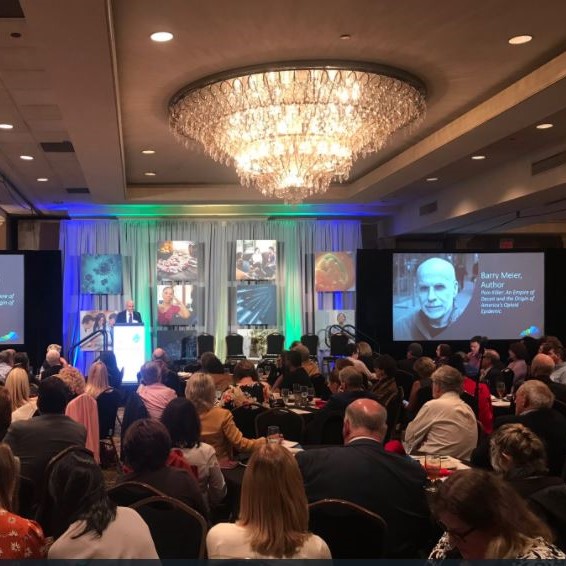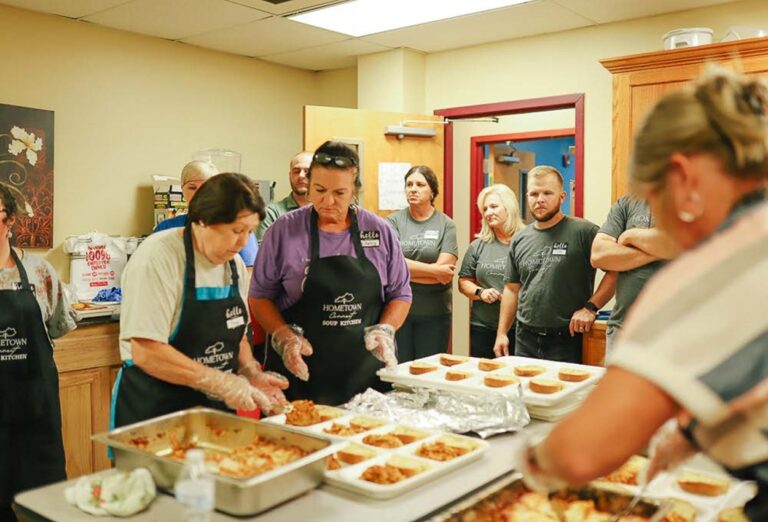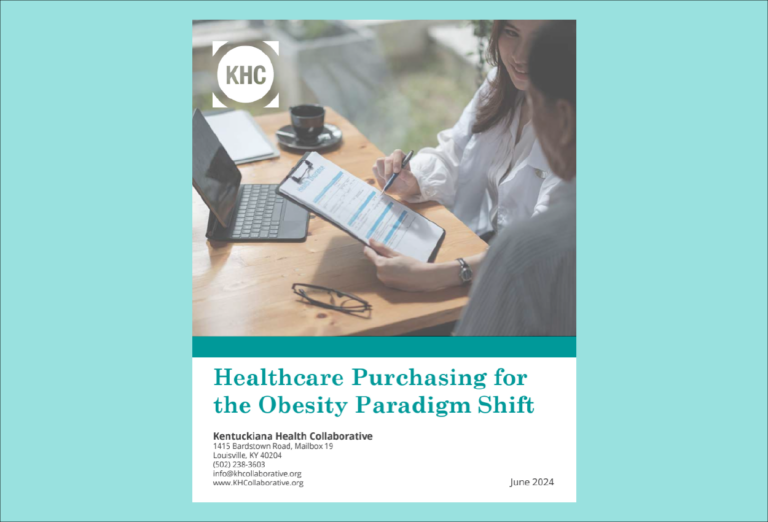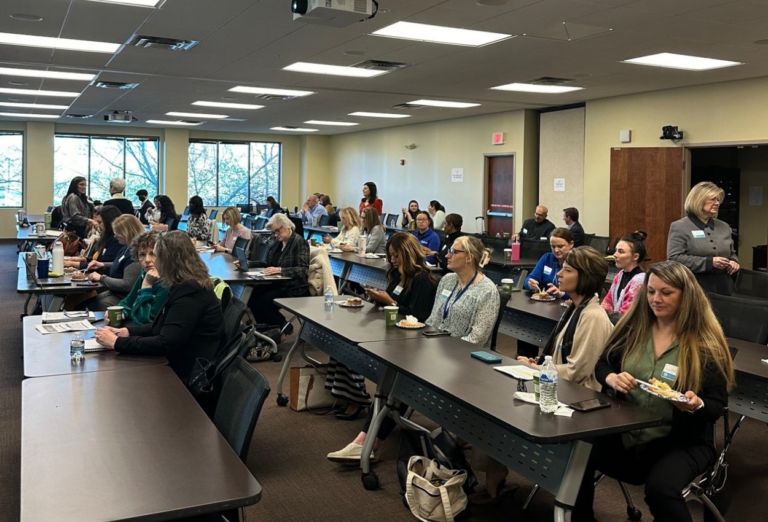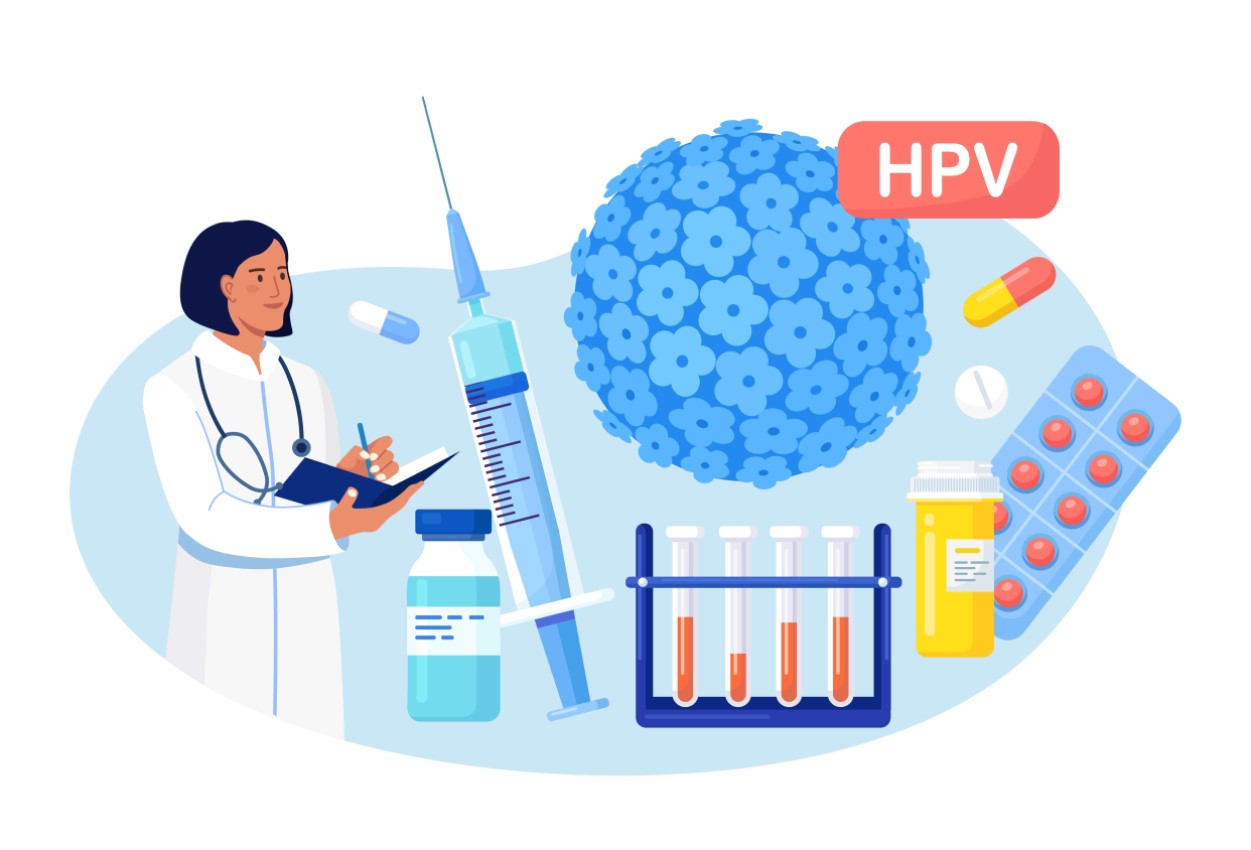The opioid crisis in Kentucky, and across the country, continues to be a hot topic in healthcare. For the second straight year, the Howard L. Bost Memorial Health Policy Forum, convened by the Foundation for a Healthy Kentucky, chose substance use (with a heavy emphasis on opioid use) as the theme for the day.
While some might expect a day devoted to yet more discussion around substance use in the Commonwealth to be full of familiar, tired conversations, the Bost Forum was anything but. All of the KHC’s staff members attended the forum, and each of us left chattering excitedly about the speakers that left us inspired, motivated, fired up, and more.
For each of us, different speakers provided a spark or connection. As a reflection on the day, each member of the KHC shared something that stuck with them about a particular speaker. Read KHC staff reflections in their own words below.
Keynote Speaker Barry Meier
Randa Deaton – Co-Executive Director
Over 200,000 Americans have died from overdoses related to prescription opioids from 1999-2016. This year’s Bost keynote speaker, Barry Meier, is the award-winning reporter whose special report in the New York Times created national interest in OxyContin. His 2003 book, “Pain Killer,” exposed the rise of the billion dollar pain management industry excesses and abuses, and he felt confident his reporting efforts would help solve America’s opioid crisis. Fifteen years later, the alarm bells are only now ringing within the government, and he has released an updated version of his book. His passion for holding the organizations accountable for this public health crisis could be felt through the room. More importantly, he conveyed the tragedy in waiting for the alarm bells to go off after 200,000 Americans have already died. The key takeaway was for those in public health to get in front of these dangerous public health trends to avoid this type of crisis in the future.
Breakout Discussion panelists: Alternatives to Opioids
Michele Ganote – Event and Communications Coordinator
There are many alternatives to opioids, with the obvious being over-the-counter pain relievers such as Tylenol and Advil. Each panelist discussed the many other options available for dealing with and treating chronic pain and how important it is to focus on the “why” of the pain and not just mask the pain with medication. I often hear about deep breathing or meditation for stress and anxiety, but before yesterday I hadn’t thought much about it for pain and recovery. Dr. Mel Pohl, CMO for the Las Vegas Recovery Center, suggested we all meditate daily. Meditation or mindfulness is commonly used in recovery at the Las Vegas Recovery Center. I found Danesh Mazloomdoost, MD, Wellward Regenerative Medicine, to be passionate about his work with “regenerative medicine,” a new medical field that studies how the body heals and how science can enhance this process. I look forward to reading his book, “50 Shades of Pain.” Other alternatives to opioids for patients living with chronic pain were physical therapy, massage, acupuncture, cognitive behavioral therapy (CBT), avoiding alcohol, eating healthy, keeping a positive attitude, distracting yourself from pain, and planning for a bright future.
KET Series on Addiction (Presented by host Renee Shaw)
Teresa Couts – Co-Executive Director
Shortly after lunch, Renee Shaw, KET, presented a video from the KET Series on Addiction. The video featured Butler High School in Louisville, KY, which has implemented the national program Sources of Strength. The mission is to provide the highest quality evidence-based prevention programs for suicide, violence, bullying and substance abuse by training, supporting, and empowering both peer leaders and caring adults to impact their world through the power of connection, hope, help, and strength. A group of students at Butler High School are training to save lives and improve the mental health of their fellow classmates. Butler health teacher Mary Wurst brought the group together after some of the students came to her for advice or guidance during their own struggles. Now, these students are using their experiences to give back to their classmates who might be in need. Butler is among the first Jefferson County Public Schools to help identify and support students who may be struggling. One student stated that “so many people are still alive because of this program and because of the coping mechanisms we’ve learned.”
Nancy Hale, Operation UNITE (part of the panel on Kentucky’s Addiction Burden)
Natalie Middaugh – Project Coordinator
The morning panel at the Howard L. Bost Memorial Health Policy Forum convened representatives with diverse perspectives to explore Kentucky’s addiction burden. A highlight of these perspectives was from Nancy Hale, President/CEO of Operation UNITE. Operation UNITE is a nonprofit organization serving 32 counties in eastern and southern Kentucky that utilizes a collaborative model to prevent substance abuse and facilitate recovery. It is difficult to find a conversation focused on addressing the substance and opioid use epidemic that does not emphasize the necessity of strategic partnerships. Operation UNITE is a long-standing and successful example of how these strategic partnerships can affect meaningful change.
Alex Elswick, Voices of Hope (part of the panel on Kentucky’s Addiction Burden)
Stephanie Clouser – Data Scientist
Alex Elswick, Co-Founder of the non-profit organization Voices of Hope, talked about the recovery process for substance use disorder and the importance of supporting people in recovery. Alex, himself a person in long-term recovery, said that we need to give more than lip-service to those in recovery. Everyone loves a great comeback story, but we need to support those who are actively going through treatment as well. Alex is “not in recovery because I pulled myself up by my bootstraps,” but because he had access to the resources he needed to get better, and we need to support individuals by addressing the barriers to those resources.
